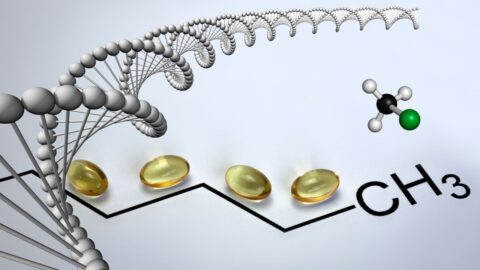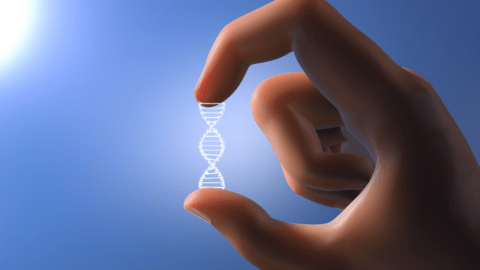Brain Fog and Allergies to Mast Cell Activation
by Vanita Dahia
- Fatigued, short of breath?
- Reactive to smells and can tolerate a handful of foods?
- Body feels like its shutting down?
You may a Histamine issue or Mast Cell Activation Syndrome (MCAS).
There are over 200 mediators of Mast Cell Activation Syndrome which impacts many organ systems. These mediators can have widespread effects in the body, interacting with multiple tissues, including the central nervous system, endocrine system, cardiovascular system, skin, respiratory tract, uterus, gastrointestinal tract, bone marrow and white blood cells.
MCAS is characterised by a wide range of inflammatory symptoms caused by increased activation of mast cells. Blood is made up of red blood cells responsible to transporting oxygen to the tissue and white blood cells which are responsible for immune defence.
When an allergen (not a nutrient) elicits an inflammatory response, then it clearly indicates that the allergen was absorbed via the gastro-intestinal tract due to a poor microbial ecology and diversity in the gut mucosa. The defence gates in the gut are sleeping.
This allergen then enters the bloodstream activating the antigen presenting cells like dendritic cells to activate and inflammatory response. Mast cells in the blood start to degranulate and release Histamine to react to the inflammation. This is typically seen as a food allergy or intolerance, sneezing, itch skin, respiratory distress or fatigue.
MCAS therefore presents itself as chronic multi-system, multi-symptom presentations which manifests in immune compromised people, or people who have had chronic long-term stress or those who with autoimmune diseases.
Drivers of MCAS
Chronic long term stress
Chronic and long term stress whether it be emotional, mental, metabolic, traumatic, or physical stress pushes Cortisol levels up which in turn activates the release of corticotrophin-releasing hormone (CRH) from the hypothalamus in the brain. CRH induces the release of MC mediators, including tumour necrosis factor alpha (TNFα), proteases, tryptase, chymase, histamine, leukotrienes which triggers a cascade of inflammatory processes.
Histamine intolerance
Dysbiosis may also be associated with reduced diamine oxidase (DAO) production, an enzyme found predominantly in the gut that metabolises dietary histamine. This may increase circulating histamine levels, which can exacerbate MC activation. Histamine needs to clear via oxidation through DAO enzyme activity or via HNMT, a methylation process.
Some prescription medication or excessive alcohol intake dampens the DAO enzyme activity, thereby contributing to Histamine accumulation.
Ensuring adequate supplementation of cofactors is paramount to support histamine metabolism i.e. optimising DAO and HNMT activity.
Gut ecology
Gut dysbiosis or leaky gut or poor intestinal permeability can contribute to MC activation which has the potential to aggravate food allergies and intolerances.
Sleep disturbances and insomnia
Insomnia disrupts the body’s circadian rhythm which drives down Melatonin production. Melatonin is directly associated with preventing MC degranulation, infiltration and activation. Ensuring adequate Melatonin and GABA levels to restore a deep sleep pattern is necessary for a good night’s sleep. It is for this reason; melatonin may be prescribed for MCAS.
Chronic infection, Mould or CIRS
Infections by bacteria, fungi, parasites and viruses can activate mast cells. MCAS patients are well advised to optimise gut ecology with a good diverse range of commensal microbiota and eradicate or manage the pathogenic infections.
Chronic pain
Chronic pain releases pain signalling neuropeptides which in turn activate mast cells perpetuating more pain and inflammation.
Estrogen
Estrogen dominance or impaired estrogen metabolism encourages estrogens to bind to estrogen receptors on MCs and induce MC degranulation. In estrogen-driven conditions (such as endometriosis or hyperplasia of the uterus), estradiol is associated with increased activity of mast cells.
Educational webinar on Brain Fog and Allergies to Mast Cell Activation
Tired of feeling tired, allergic to smells and foods and living with a foggy brain? Sensitive to foods, smell and fatigued all the time? You could you have a histamine issue or mast cell activation syndrome.
You may have MCAS if you are fatigued, short of breath, experience hives or allergies, cannot focus or feel weak and dizzy.
Mast cell activation syndrome (MCAS) is a condition in which the defence mechanism in your blood, particularly the mast cells release too much of Histamine and other vasoactive molecules, which cause allergies.
Mast cells are part of your immune system.
Often, a Dr will refer you to a lung specialist for shortness of breath or an allergist for allergies, but the correct diagnosis is paramount to identifying allergies, histamine tolerance, fatigue and brain fog.
In this webinar, you will learn:
• What is the impact of allergies on the body
• What is Mast cell Activation Syndrome (MCAS) and what causes it
• How to diagnose and manage allergies, sensitivities, Histamine and MCAS with pharmaceutical and natural treatments
Test for Allergies, Histamine, Mast Cell Activation Syndrome
Take the Mast Cell Activation Questionnaire






